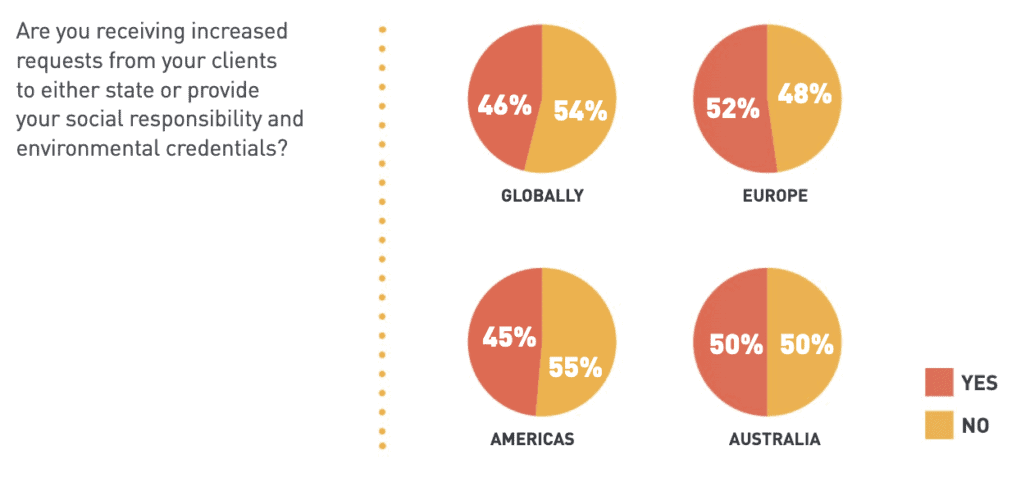
Sustainability may not be the top priority for all meeting and event organizers, but almost half of the venues participating in a recent study said more clients are now asking for their social responsibility and environmental credentials than in the past.
Sustainability has been a growing concern for many meeting and event organizers. While it may have taken a bit of a back seat during the pandemic as most events went virtual, it still is top of mind for both venues and event organizers. This is one of the many results of a recent study conducted by Development Counsellors International (DCI) on behalf of the International Association of Conference Centers (IACC).
The Meeting Room of the Future Barometer 2022 report found that sustainability, which was pegged as the most important element by venue operators for the future in the 2020 report, is still top of mind for venues. In fact, 87% of responding venues said they now have an environmental or sustainability policy statement, and 82% have a social responsibility statement. The greatest strides in the past two years on the venue side have been in their ability to donate unused food from group events to local community organizations that serve those in need. More than half, 54%, now say they have this option available to groups, compared to less than a quarter two years ago. Other sustainability features venues report are currently available are programs to reduce the consumption of single-use plastics (82%); the ability to manage food waste (91%) and menus with a healthy food focus (94%).
These sustainability focuses do vary from region to region, with venues in Europe and Australia leading the Americas in environmental, sustainability, and social responsibility policy statements. The most significant regional difference is in venue’s single-use-plastic-consumption-reduction programs, where venues in the Americas lag their European and Australian counterparts significantly in finding ways to reduce single-use products in guest room amenities, plastic drink bottles, plastic food utensils, and cups used to hold hot drinks in both guest rooms and meeting rooms. Venues in the Americas have a slight edge on programs to reduce food waste, healthy menus, unused food donation programs and CSR activities available for staff participation.
This focus on improving environmental, social and governance (ESG) initiatives on the venue side coincides with requests venues are receiving from clients to show their ESG bona fides. In fact, 46% of venues worldwide reported clients were increasingly asking about their ESG initiatives. However, this also varied by region. Fifty-two percent of European venues said they were getting more of these requests for clients nowadays, compared to 50% of Australian venues and 45% of venues in the Americas. And a key sustainability metric — having a way to measure the carbon footprint of an event held at their venue — was something just 13% of the reporting venues said their clients were asking for.
The full report, which also contains insights about the industry’s pace of recovery, predictions on the future of meetings and events post-pandemic, talent attraction and retention and other emerging areas of impact for the industry, is available for download free of charge on the IACC website.
You May Also Be Interested In
EIC Welcomes First Online Sustainable Event Professional Certificate Graduates
Our 10 Favorite Sustainability Articles
COVID’s Impact on Sustainability










